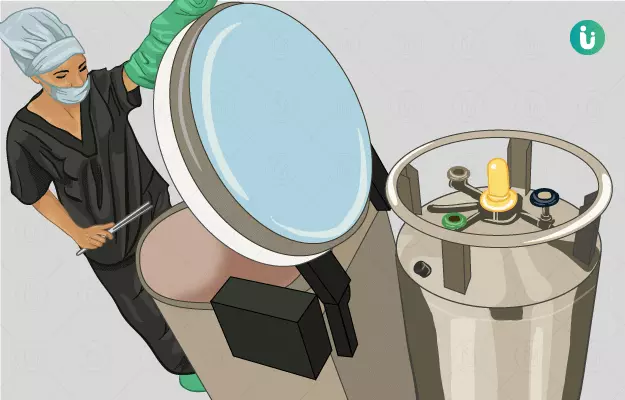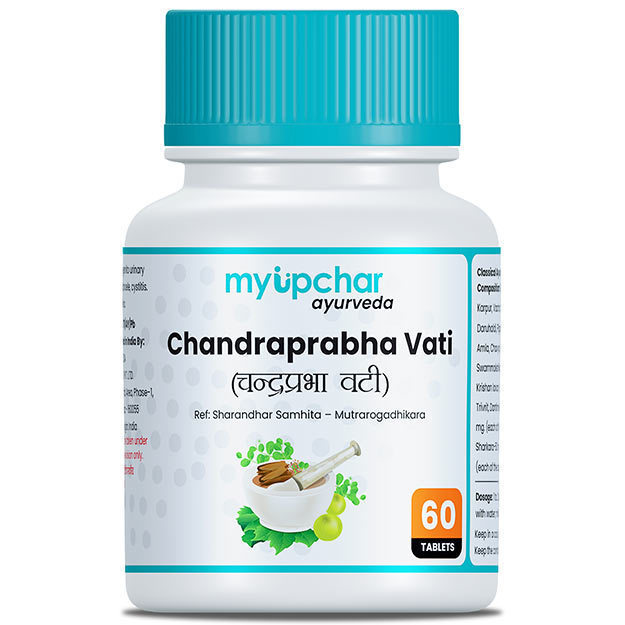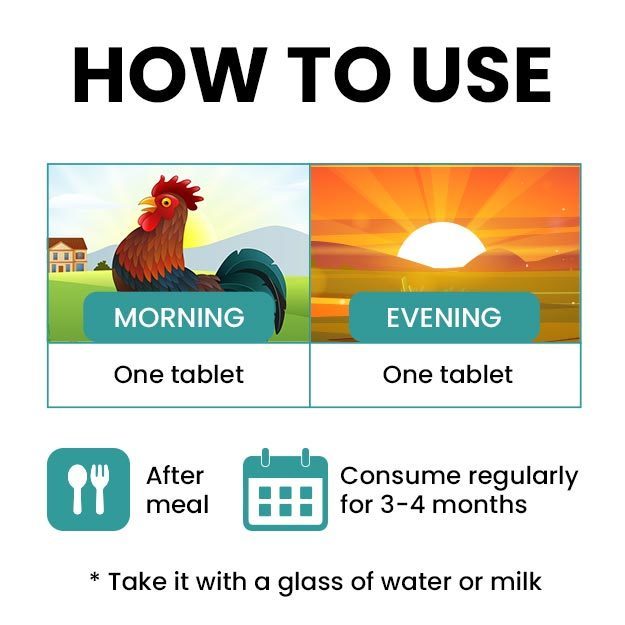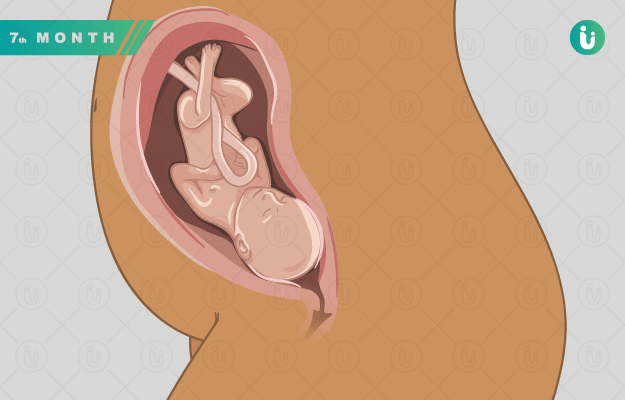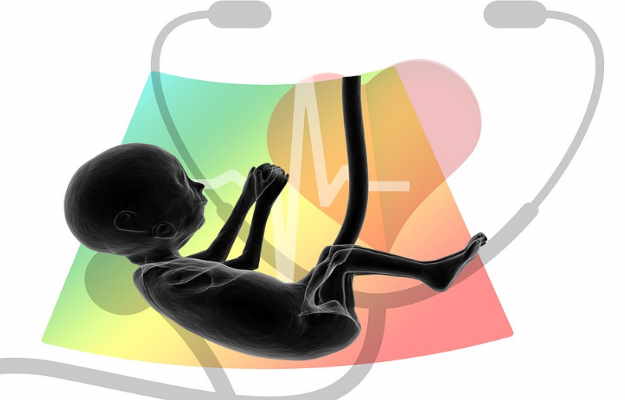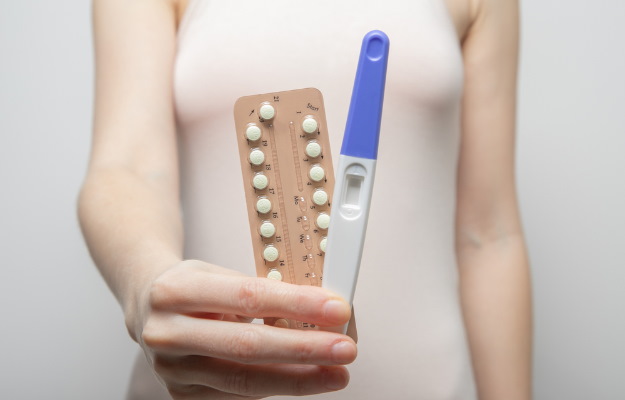Egg freezing, medically known as mature oocyte cryopreservation, is a method used to preserve fertility in women. Egg freezing involves removing mature eggs from your ovaries, freezing them and storing them for future use. Frozen eggs can then be mixed with sperm in a laboratory when needed, and then the fertilized eggs can be placed in the woman's uterus (via in vitro fertilization or IVF).
As women age, the likelihood of chromosomal abnormalities increases, and with it the risk of miscarriage, birth defects or disorders that make pregnancy more difficult. Egg freezing is seen by some as a way to stop the biological clock, expand reproductive options and preserve young and healthy eggs. For many women who want to extend their child-bearing potential, it has become an increasingly attractive option. This article explains in detail what egg freezing is, how egg freezing is done, how much it costs to get egg freezing done, along with the advantages and disadvantages of egg freezing and its success rate.
(Read more - IVF failure reasons)
- What Is Egg Freezing?
- How Is The Egg Freezing Process Done?
- Benefits Of Egg Freezing
- Disadvantages Of Egg Freezing
- Cost Of Egg Freezing
- Success Rates Of Egg Freezing
- Summary
What Is Egg Freezing?
Egg freezing or oocyte cryopreservation is a method of storing a woman's mature and fertile eggs so that she can try to conceive at a later date when she will no longer be able to conceive naturally.
Egg freezing may be considered a way to preserve the possibility of fertility for women who are currently unable to become pregnant or whose fertility is at risk of being lost due to medical reasons such as cancer treatment. The first human birth from a frozen egg was in 1986.
A woman is most fertile for pregnancy from her 20s to early 30s, when a woman's ovaries produce a large number of healthy eggs. As a woman ages, the quality and quantity of her eggs decrease. Despite having regular menstrual cycles 10 to 15 years before menopause, ovarian function begins to decline. This is especially true for women who are in their 40s and are unlikely to achieve a healthy pregnancy.
Egg freezing technology has advanced significantly in the past few years, improving the number of eggs that survive the freezing process. It is no longer considered an experimental medical procedure by the American Society for Reproductive Medicine.
(Read more - What to Eat and What to Skip During IVF)
How Is The Egg Freezing Process Done?
First, the doctor tests you for any infectious diseases such as HIV and hepatitis. This test has no bearing on whether you are eligible to freeze your eggs, but the purpose of the test is to ensure that samples of the affected eggs are stored separately to avoid spoiling other frozen samples.
To obtain eggs for freezing, a woman is usually given hormonal stimulation medication for 10 to 12 days, which enables several eggs to mature (usually 6-15). There are several techniques for this type of stimulation and a discussion with your fertility specialist will decide which is the best method for you.
The stimulation medication is self-administered by daily injection using a pen-like device with a small needle. You are taught how to use this medication on yourself in the initial consultation. The injection may cause a woman to feel a little bloated in the vaginal area but there are no major persistent side effects and she can carry out all normal activities even during this period of stimulation.
(Read more - How To Take Care During Pregnancy)
The eggs are collected from the ovaries using a device inserted into the vagina with the help of ultrasound. A needle rotates inside this device and can be passed slowly through the vaginal wall to each ovary, allowing the doctor to remove the eggs from the ovaries.
The procedure is usually done under a mild general anesthetic or sedation. You can go home 1 hour after the procedure. You are also advised not to drive for the day and to rest. About 15 eggs are collected from most women, although this is not always possible for women with a small number of eggs in their ovaries.
When a woman wants to use her frozen eggs, the eggs are thawed and the remaining eggs are combined with sperm from the woman's partner or a donor in a lab.
(Read more - Every Mother Should Know : Pregnancy Problems)
Benefits Of Egg Freezing
This technique of freezing eggs gives you freedom from your biological clock because when you are finally ready for children, you will have high quality eggs available even if you are older at that time and possibly avoid fertility treatments that may be less successful due to age. The following are the benefits of egg freezing technique -
You are planning to spend your 30s to further your education and career, but you still want to have the option of having children later.
(Read more - How To Take Care During Pregnancy)
After getting eggs frozen, you will not be worried about getting older while dating. Instead, you will be able to enjoy getting to know the other person. Once you have frozen your eggs, you will not have to worry about whether you are thinking of having children or not.
(Read more - Eating Eggs During Pregnancy)
Disadvantages Of Egg Freezing
Although the surgical procedure to freeze eggs is mostly safe, there is a risk of ovarian hyperstimulation syndrome or OHSS due to the hormone injections, which makes some women sick. It can also cause nausea, vomiting and stomach pain.
Sadly, not all eggs that are frozen survive the process or become fertilized by the time they are later removed for use. In some cases, not even a single egg survives.
Frozen eggs are never a guarantee for pregnancy and the birth of a healthy baby later in life. Women who freeze their eggs may not know the results for several years and may lose the opportunity to have a child naturally.
(Read more - Benefits Of Eating Sabudana During Pregnancy)
Cost Of Egg Freezing
The cost of the egg freezing procedure varies widely, with different clinics varying considerably. So you should compare prices before choosing a clinic. Keep in mind the various components of their total cost.
The estimated cost of the procedure, which includes the cost of removing eggs from the ovaries, freezing the eggs through vitrification and storing the eggs in liquid nitrogen, is around Rs 1.5 lakh. Longer term storage is more expensive.
Make sure that the egg freezing procedure includes the cost of freezing time, medications, lab costs, fertilization and storage so that you do not have to bear additional expenses later.
(Read more - How to reduce body heat naturally during pregnancy)
Success Rates Of Egg Freezing
About 90 percent of eggs survive the freezing and thawing process, and about 75 percent can be successfully fertilized.
The chances of getting pregnant after implantation are between 30 and 60 percent, depending on your age at the time of egg freezing. The older you are at the time of egg freezing, the lower your chances of conceiving in the future.
A newer freezing method called vitrification has a good success rate, just 2 percent lower than the success rate of IVF technology, according to 2016 data. However, there is no evidence of long-term safety and reliability of this method. (The available data is based on foreign studies.)
How successful this procedure will actually be in India is something only time will tell. Most of the women who have frozen their eggs have not yet retrieved them to conceive.
(Read more - The Role of Folic Acid in Female Fertility)
Summary
Egg freezing is a modern reproductive technique in which women's eggs are frozen for future use. In this process, eggs are matured through hormonal drugs, then they are extracted and preserved in liquid nitrogen at -196°C. This process is useful for women who do not want to conceive right now for some reason. This technique provides women with new possibilities in the field of reproduction, but consultation with a doctor is necessary before making a decision.

